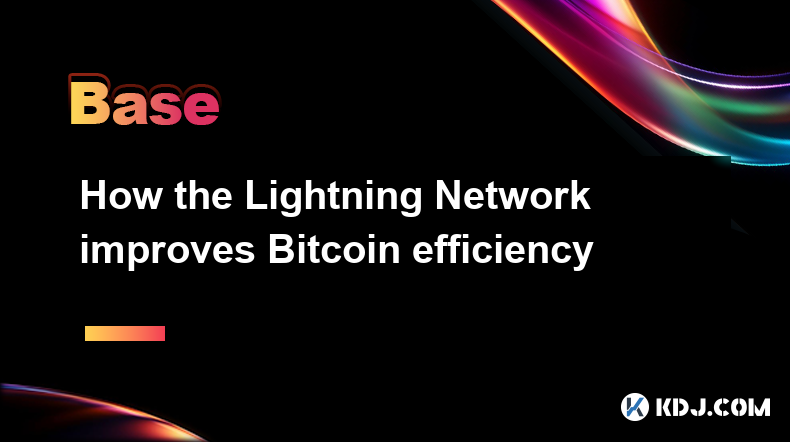-
 Bitcoin
Bitcoin $84,384.8183
-1.07% -
 Ethereum
Ethereum $1,575.4217
-2.16% -
 Tether USDt
Tether USDt $1.0000
0.01% -
 XRP
XRP $2.0513
-1.44% -
 BNB
BNB $587.7666
-0.46% -
 Solana
Solana $136.1987
-1.90% -
 USDC
USDC $0.9999
-0.01% -
 TRON
TRON $0.2449
1.47% -
 Dogecoin
Dogecoin $0.1531
-3.16% -
 Cardano
Cardano $0.6115
-1.84% -
 Chainlink
Chainlink $13.1143
2.54% -
 UNUS SED LEO
UNUS SED LEO $9.3289
0.19% -
 Avalanche
Avalanche $19.3767
-1.94% -
 Toncoin
Toncoin $2.9937
0.90% -
 Stellar
Stellar $0.2413
-1.97% -
 Shiba Inu
Shiba Inu $0.0...01238
1.50% -
 Hedera
Hedera $0.1638
-1.14% -
 Sui
Sui $2.0935
-2.40% -
 Bitcoin Cash
Bitcoin Cash $332.2596
-0.98% -
 Polkadot
Polkadot $3.8775
3.68% -
 Hyperliquid
Hyperliquid $17.3658
-3.92% -
 Litecoin
Litecoin $76.0310
0.32% -
 Dai
Dai $1.0000
0.00% -
 Bitget Token
Bitget Token $4.3896
-3.25% -
 Ethena USDe
Ethena USDe $0.9993
0.01% -
 Pi
Pi $0.6275
-2.84% -
 Monero
Monero $216.5762
1.82% -
 Uniswap
Uniswap $5.2230
-0.81% -
 Pepe
Pepe $0.0...07465
1.17% -
 Aptos
Aptos $4.9923
2.61%
What Is the Agency Theory?
Agency theory, focusing on the incentives and motivations of agents within organizations, emphasizes the potential conflicts of interest that may arise between principals (owners) and agents (managers).
Oct 19, 2024 at 07:48 am

1. Definition of Agency Theory
Agency theory is a framework that explores the relationship between principals (owners or shareholders) and agents (managers or executives) within an organization. It delves into the incentives and motivations that drive agents to act on behalf of principals and examines the potential conflicts of interest that may arise.
2. Key Assumptions of Agency Theory
- Agents are self-interested: Agents prioritize their own goals and interests, which may not always align with the interests of principals.
- Agents have limited rationality: Agents are bounded by cognitive biases and limitations and cannot fully process all relevant information.
- Information asymmetry: Agents typically possess more information about the organization's operations than principals.
- Goals differ: The goals of principals (maximizing shareholder value) may diverge from those of agents (pursuing higher salaries or power).
3. Conflicts of Interest in Agency Theory
Agency theory identifies several potential conflicts of interest that can arise between principals and agents:
- Principal-Agent Conflict: Agents may act in ways that benefit themselves at the expense of principals.
- Managerial Discretion Conflict: Managers may have too much freedom to make decisions without sufficient oversight.
- Entrenchment Conflict: Agents may gain excessive control and become entrenched in their positions, preventing principals from replacing them.
4. Mechanisms to Mitigate Conflicts
To mitigate agency conflicts, organizations can implement various mechanisms:
- Monitoring: Regular performance evaluations and financial audits to ensure agents are acting in the best interests of principals.
- Bonding: Require agents to deposit funds or other assets to incentivize good behavior.
- Profit-sharing: Tie agents' compensation to the organization's profitability, aligning their interests with those of principals.
- Governance: Establish clear rules and procedures to limit managerial discretion and hold agents accountable.
5. Relevance of Agency Theory
Agency theory has significant relevance in modern business and organizational settings:
- Corporate Governance: It helps understand issues related to board effectiveness and executive pay.
- Executive Compensation: It provides insights into how to design compensation packages that motivate agents to act in the interests of principals.
- Stakeholder Management: It emphasizes the importance of aligning the interests of stakeholders (e.g., customers, employees) with those of principals.
Conclusion
Agency theory is a valuable framework for analyzing the dynamics of principal-agent relationships within organizations. It identifies potential conflicts of interest and suggests mechanisms to mitigate them. By applying agency theory principles, organizations can enhance accountability, reduce conflicts, and improve overall performance.
Disclaimer:info@kdj.com
The information provided is not trading advice. kdj.com does not assume any responsibility for any investments made based on the information provided in this article. Cryptocurrencies are highly volatile and it is highly recommended that you invest with caution after thorough research!
If you believe that the content used on this website infringes your copyright, please contact us immediately (info@kdj.com) and we will delete it promptly.
- Pi Network (PI) Price Prediction: It Could Get Ugly
- 2025-04-21 00:25:13
- Dogecoin (DOGE) Holders Celebrate Doge Day on April 20, 2025, as the Community Awaits a Possible DOGE ETF
- 2025-04-21 00:25:13
- A renewed wave of optimism is spreading through the Dogecoin market
- 2025-04-21 00:20:13
- Solana (SOL) Price Wedged Between Two Crucial Levels, Breakout or Breakdown?
- 2025-04-21 00:20:13
- Bitcoin BTC/USD, Ethereum ETH/USD, XRP XRP/USD, and Dogecoin DOGE/USD Moved Sideways Amid Tariff Uncertainties
- 2025-04-21 00:15:12
- The Solana Price Was One of the Few Highlights
- 2025-04-21 00:15:12
Related knowledge

The function of cross-chain bridges in blockchain
Apr 19,2025 at 10:01am
The function of cross-chain bridges in blockchain is a pivotal topic within the cryptocurrency ecosystem, as these tools enable the seamless transfer of assets and data across different blockchain networks. This article delves into the various aspects of cross-chain bridges, explaining their importance, how they work, and the benefits and challenges the...

How the Lightning Network improves Bitcoin efficiency
Apr 17,2025 at 08:56pm
The Lightning Network represents a significant advancement in the Bitcoin ecosystem, aiming to address some of the most pressing issues related to transaction speed and cost. By enabling off-chain transactions, the Lightning Network drastically improves Bitcoin's efficiency, allowing for faster and cheaper transactions. This article will explore how the...

Market value ranking basis in cryptocurrencies
Apr 20,2025 at 05:08am
The market value ranking in cryptocurrencies is a crucial metric that investors and enthusiasts use to gauge the relative size and importance of different digital assets. This ranking is primarily based on the total market capitalization of each cryptocurrency, which is calculated by multiplying the current price of a single unit of the cryptocurrency b...

What is the role of nodes in the blockchain
Apr 20,2025 at 03:29pm
The role of nodes in the blockchain is fundamental to the operation and integrity of the network. Nodes are the individual computers or devices that participate in the blockchain network. They play a critical role in maintaining the decentralized nature of blockchain technology, ensuring that transactions are verified, recorded, and distributed across t...

Analysis of the KYC process of cryptocurrency exchanges
Apr 17,2025 at 05:07pm
The Know Your Customer (KYC) process is a critical component in the operations of cryptocurrency exchanges. It serves as a regulatory measure to prevent fraud, money laundering, and other illicit activities. KYC procedures are designed to verify the identity of users and ensure compliance with financial regulations. This article delves into the various ...

The operating mechanism behind the stablecoin USDT
Apr 20,2025 at 08:08am
The stablecoin USDT, also known as Tether, is a cryptocurrency designed to maintain a stable value by pegging it to a reserve asset, typically the US dollar. Understanding the operating mechanism behind USDT is crucial for anyone interested in the cryptocurrency market, as it plays a significant role in trading and liquidity. This article will delve int...

The function of cross-chain bridges in blockchain
Apr 19,2025 at 10:01am
The function of cross-chain bridges in blockchain is a pivotal topic within the cryptocurrency ecosystem, as these tools enable the seamless transfer of assets and data across different blockchain networks. This article delves into the various aspects of cross-chain bridges, explaining their importance, how they work, and the benefits and challenges the...

How the Lightning Network improves Bitcoin efficiency
Apr 17,2025 at 08:56pm
The Lightning Network represents a significant advancement in the Bitcoin ecosystem, aiming to address some of the most pressing issues related to transaction speed and cost. By enabling off-chain transactions, the Lightning Network drastically improves Bitcoin's efficiency, allowing for faster and cheaper transactions. This article will explore how the...

Market value ranking basis in cryptocurrencies
Apr 20,2025 at 05:08am
The market value ranking in cryptocurrencies is a crucial metric that investors and enthusiasts use to gauge the relative size and importance of different digital assets. This ranking is primarily based on the total market capitalization of each cryptocurrency, which is calculated by multiplying the current price of a single unit of the cryptocurrency b...

What is the role of nodes in the blockchain
Apr 20,2025 at 03:29pm
The role of nodes in the blockchain is fundamental to the operation and integrity of the network. Nodes are the individual computers or devices that participate in the blockchain network. They play a critical role in maintaining the decentralized nature of blockchain technology, ensuring that transactions are verified, recorded, and distributed across t...

Analysis of the KYC process of cryptocurrency exchanges
Apr 17,2025 at 05:07pm
The Know Your Customer (KYC) process is a critical component in the operations of cryptocurrency exchanges. It serves as a regulatory measure to prevent fraud, money laundering, and other illicit activities. KYC procedures are designed to verify the identity of users and ensure compliance with financial regulations. This article delves into the various ...

The operating mechanism behind the stablecoin USDT
Apr 20,2025 at 08:08am
The stablecoin USDT, also known as Tether, is a cryptocurrency designed to maintain a stable value by pegging it to a reserve asset, typically the US dollar. Understanding the operating mechanism behind USDT is crucial for anyone interested in the cryptocurrency market, as it plays a significant role in trading and liquidity. This article will delve int...
See all articles























































































